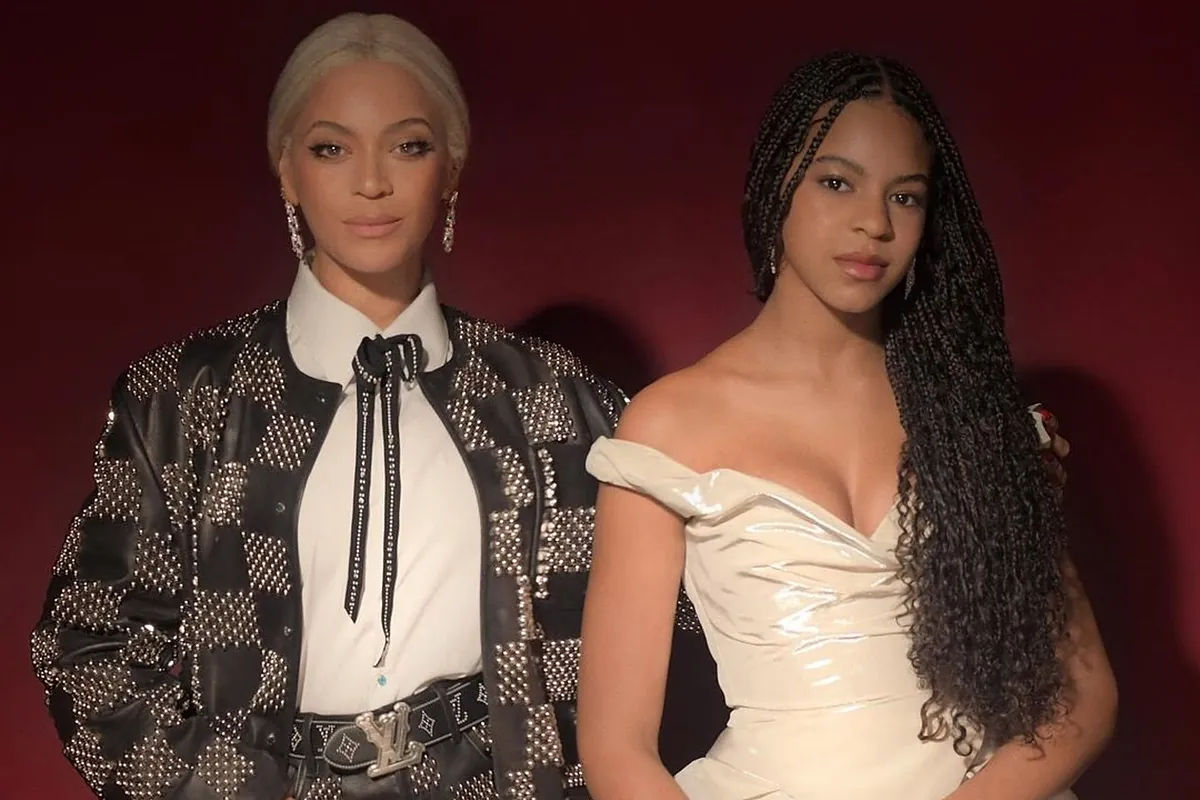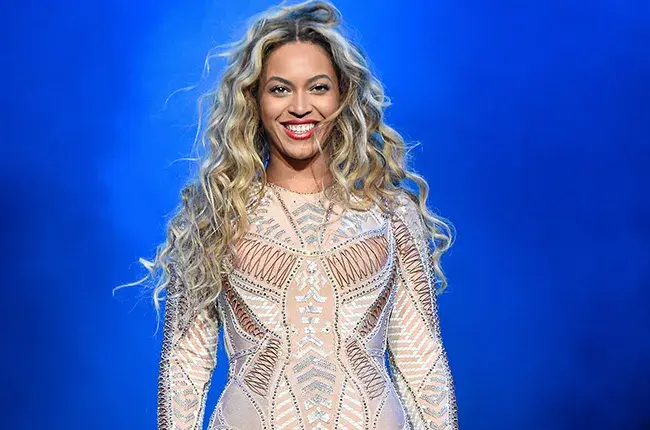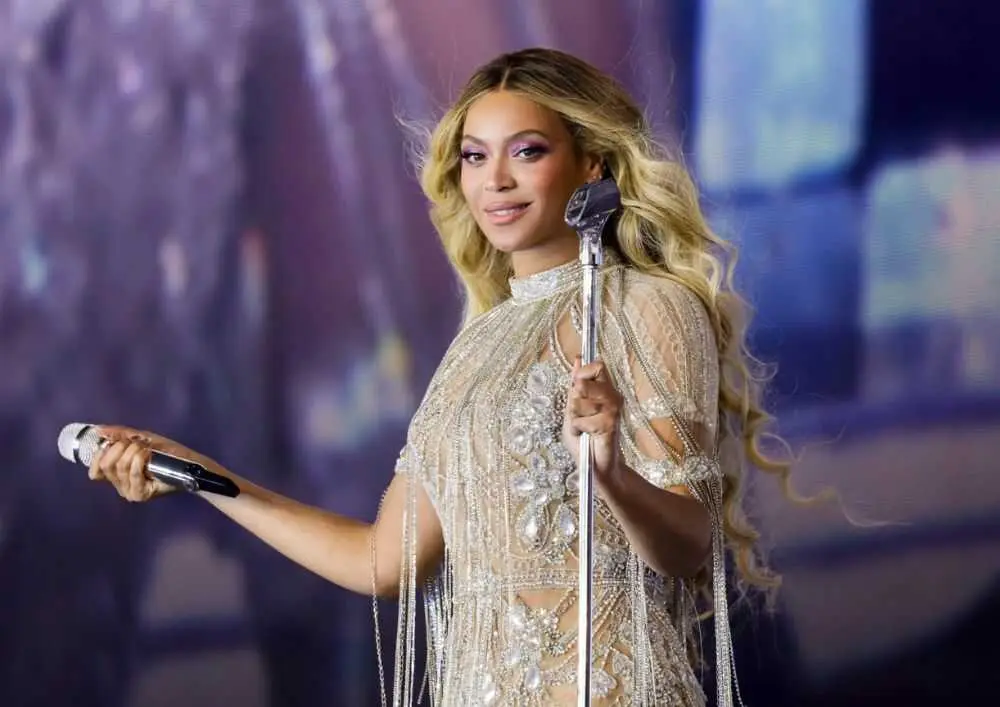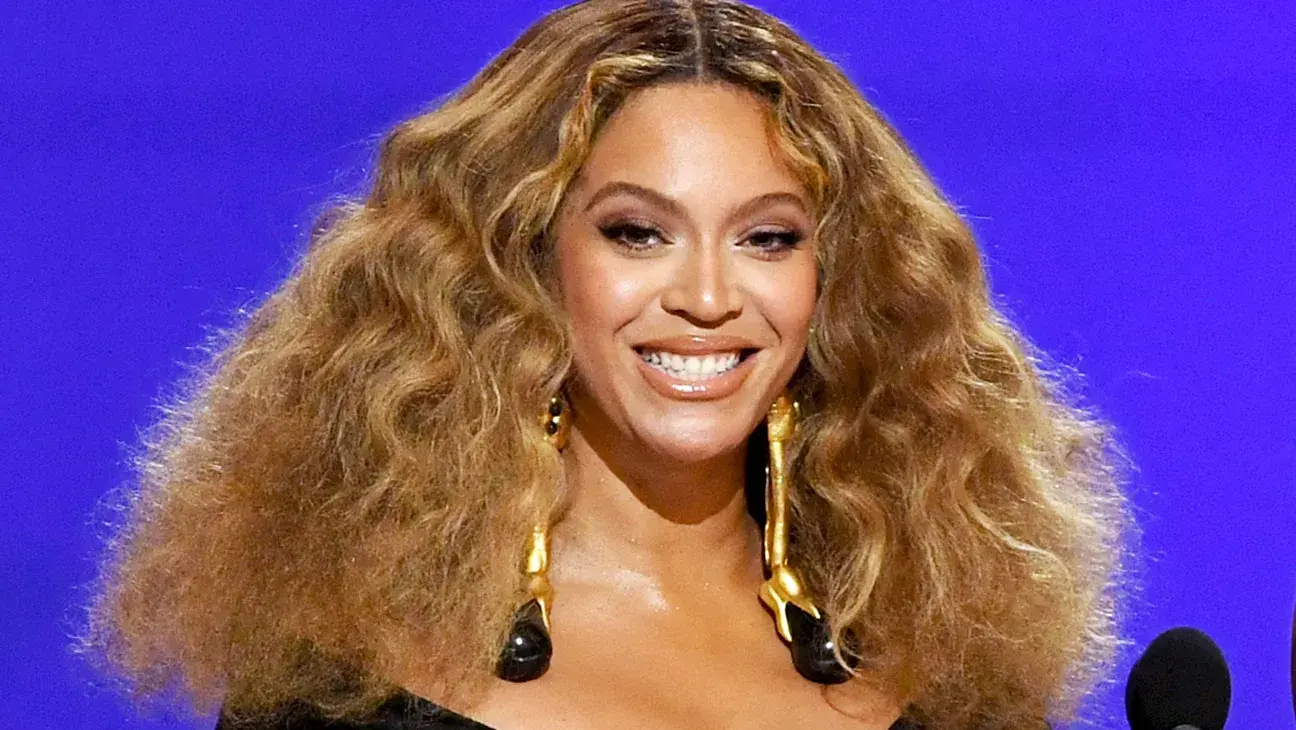
SHOCKED SHOWBIZ WORLD TWIST!! Beyoncé’s daughter Blue Ivy, 13, announces that Blue Ivy is three months pregnant – and the identity of the baby’s father will make you wonder…
A sensational rumor rippled through the entertainment world when a false online claim surfaced alleging that 13-year-old Blue Ivy Carter had announced she was three months pregnant. The misinformation spread rapidly across gossip pages and viral social media posts, igniting confusion and disbelief.

The shocking headline stunned audiences — not because anyone believed it, but because of how bold and irresponsible the claim appeared. Fans, media observers, and family supporters immediately condemned the fabrication as harmful and reckless, especially involving a minor.

Within minutes, credible sources and fact-checking accounts stepped in to clarify the obvious truth: Blue Ivy is not pregnant, has never made such an announcement, and continues to live a private life focused on school, dance, and creative pursuits.

Many users expressed outrage that a child could be targeted by fabricated celebrity gossip. Commenters denounced those behind the rumor, calling it one of the most disrespectful and invasive examples of false reporting aimed at the Carter family.
Blue Ivy, a 13-year-old Grammy-winning performer and daughter of Beyoncé and Jay-Z, has impressed the public with talent and poise. While she occasionally appears at major events, her parents maintain careful boundaries to protect her childhood.
Experts in media ethics noted that spreading false pregnancy rumors about minors crosses a serious ethical line. They emphasized that fabricating personal information about children risks long-term psychological and social harm.
The rumor fueled discussions about the dangers of celebrity culture in the digital age. Social platforms have enabled narratives to spread quickly without verification, especially when tied to famous names and sensational claims.
Supporters highlighted that Blue Ivy has done nothing to invite such invasive attention. Instead, she has been a positive youth figure, earning praise for discipline, grace, and artistic promise.
Within hours, hashtags emerged defending her and demanding accountability from those responsible for circulating the story. Fans insisted that minors must be off-limits, regardless of celebrity status.
Media commentators drew parallels to previous moments where celebrity children faced unfair scrutiny. They called this episode a reminder that humanity and ethics must supersede entertainment value.
Others pointed out that Beyoncé and Jay-Z have consistently modeled responsible parenting, limiting public exposure and teaching their children confidence and privacy protection.
Legal analysts noted that spreading false claims about minors could trigger serious legal consequences. Laws protecting children from defamation and harassment are strict, and high-profile families possess resources to pursue action.
The misinformation also sparked conversations about the responsibility of media consumers. Many urged audiences to question sensational claims, particularly those involving children, before sharing or reacting.
This incident highlighted a growing concern: online culture has normalized false headlines in the pursuit of attention, shares, and engagement. Critics argued that social media platforms must do more to prevent misinformation targeting minors.
Support for the Carter family surged, with fans emphasizing respect and protection for Blue Ivy. Observers praised her resilience and predicted she will continue to thrive despite occasional tabloid noise.
Mental health advocates emphasized that children in the public eye deserve care, privacy, and supportive environments — not exploitation for viral gossip. They reminded audiences that famous children are still children.
Commentators also noted the irony of the situation: in a culture obsessed with fame, the real story became not the rumor itself but the outrage over how far people will go for shock value.
Analysts predicted this moment would prompt renewed discussion on ethical celebrity reporting, potentially influencing industry practices and online policy enforcement regarding minors.
In the end, the false rumor dissolved under the weight of truth and public backlash. What remains is a powerful reminder of society’s duty to protect young individuals, regardless of fame or lineage.
For now, Blue Ivy continues growing into her talents and future — shielded by supportive family, encouraged by fans, and backed by a public unwilling to tolerate harmful narratives targeted at a child.


